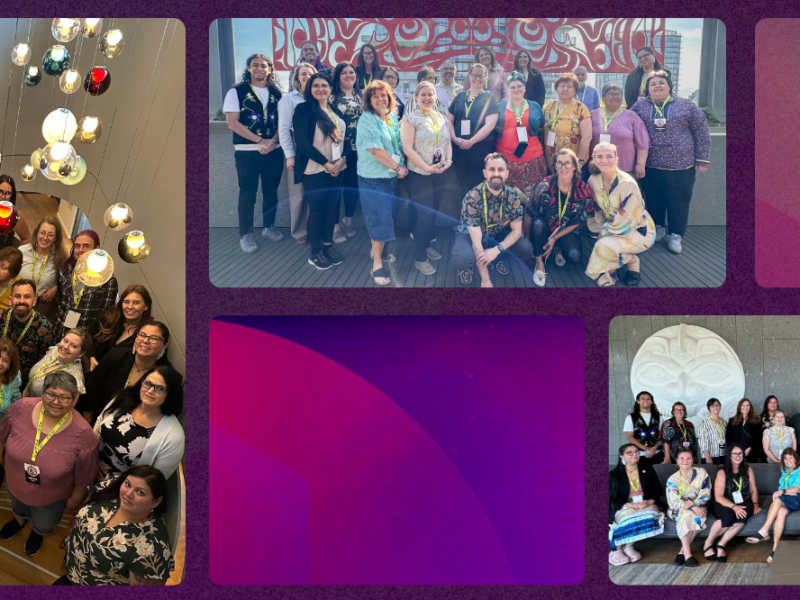Towards a Canadian PIAAC Research Agenda

Skills are fundamental drivers of productivity and prosperity, as well as individual and societal health and well-being. But knowing which skills are essential and exactly how they contribute to better social and economic outcomes depends on a foundation of good data and analysis. With the recent release of the second cycle of the OECD’s Programme for the International Assessments of Adult Competencies (PIAAC), we have much of the data we need. What’s missing is a well-crafted research agenda to help us understand what the data reveals and how we can use skills to lift Canadians’ health, wealth and well-being.
A Canadian PIAAC Research Agenda
With support from the Future Skills Centre, Shift Insights has developed exactly that. The Canadian PIAAC Research Agenda identifies key research questions to extract insights from new PIAAC data, as well as a set of enabling conditions to ensure that researchers, policymakers and practitioners across Canada can access and use PIAAC to improve their work.
Developed through a careful examination of what PIAAC data have to offer, what past research reveals and leaves unclear about adult skills, and what stakeholders in the skills community believe is important, the Research Agenda offers a plan to seize the opportunity presented by the second cycle of PIAAC to improve Canada’s skills landscape.
Three Pillars
The Canadian PIAAC Research Agenda has three pillars:
- Pillar 1: Skills as Drivers Research. What can we learn from PIAAC about exactly how skills drive key outcomes including productivity, prosperity, health and well-being? Past research using PIAAC data left many questions about how skills contribute to economic and social outcomes unanswered, which may explain why PIAAC has tended to receive less attention than it deserves. The first pillar of the Canadian PIAAC Research Agenda will focus on addressing those questions both to clarify the role skills play and to make the case that skills deserve more attention in policy and economic strategy.
- Pillar 2: Infrastructure and Enabling Conditions. How can we make PIAAC data more accessible and usable for a wider community of researchers and practitioners? While the OECD and Statistics Canada release high-level analyses of PIAAC data and house data for use, some researchers and practitioners face barriers to understanding and using the data effectively. The second pillar of the Canadian PIAAC Research Agenda recommends a suite of activities to organize and present the data in more accessible formats; link to other data sources, including Census, tax and other administrative data sources; and offer training to potential users to ensure that they can use the data effectively and in full awareness of its strengths and weaknesses. Additionally, the Agenda articulates ways to incentivize, coordinate, and disseminate the results of PIAAC-related research.
- Pillar 3: Skills as Outcomes Research. What skills do Canadians have and how can we improve? Much of the research conducted with the first cycle of PIAAC data focused on Canadians’ skill levels, how we compared globally, how different groups in Canada were faring, what explained levels and differences, and how improvements could be made. Revisiting the questions with new PIAAC data is an important, albeit second-stage, pillar of the Canadian PIAAC Research Agenda.
In addition to the research and enabling conditions pillars articulated in the Agenda, we emphasize the importance of examining differences across jurisdictions and pursuing case studies to understand why some excel and others lag with a view to identifying best practices and pitfalls to avoid.
A Skills Agenda for Productivity and Growth
With the second cycle of PIAAC, Canada has a once-in-a-decade opportunity to design and execute a strategy to fill knowledge gaps, identify exactly why and how skills matter to economic and social outcomes, and help shape policies and programs to improve Canada’s performance. If Canada is to effectively address its major productivity and growth challenges, we will need a better understanding of exactly how skills play a role and how they can help drive improvements.The Canadian PIAAC Research Agenda offers an important step to achieving those goals.
The views, thoughts and opinions expressed here are the author’s own and do not necessarily reflect the viewpoint, official policy or position of the Future Skills Centre or any of its staff members or consortium partners.




